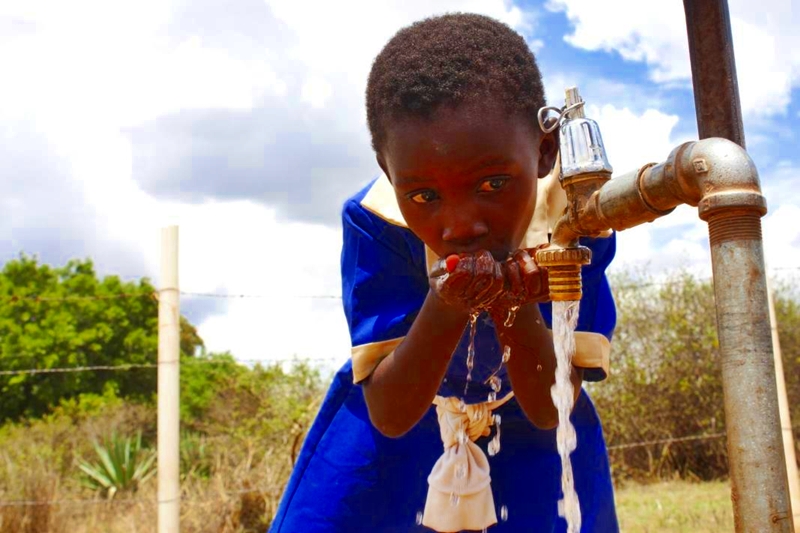Health
E-WASH: Water Stakeholders Task Media Practitioners on Priority Reportage of Water Sanitation
By Franklin Eledu
Stakeholders in the Water sector have charged the Media Industry to embark on efficient awareness and enlightenment campaigns to inform members of the public on the need to always consume safe potable water.
The stakeholders coming under the aegis of the Effective Water Sanitation and Hygiene Services (E-WASH), at a Media Roundtable and WASH Media Training Workshop organized by the United States Agency for International Development (USAID) in Asaba, the Delta State capital, advocated the urgent need for Water Consumption in the State to meet the World Health Organization, WHO standard.
At the end of the 3-day workshop, participants commended USAID and Delta State Government for the opportunity to enhance and broaden their knowledge on specific issues about the WASH sector. They urged media practitioners to accommodate the views of all stakeholders in the water, sanitation and hygiene sector when reporting issues on WASH.
E-WASH is a four(4) year USAID program that is partnering with the Delta State Government through the Delta State Urban Water Corporation to aid the State Government in providing potable and sustainable water to residents of the state.
According to USAID collaborators, E-WASH will provide well treated quality water with WHO standard through the Delta State Urban Water Corporation, positing that, the water treatment plants will be thoroughly fenced and secured 24/7 which will inaccessible to visitors in order to ensure safety.
In the words of Christian Maduka, a resource personnel, “that water is looking clean without taste or odour doesn’t mean it is safe for consumption because our stomach/body is sensitive to the things we take in. Therefore whatever water we are using is suppose to undergo laboratory test and treatment to avoid drinking or using contaminated water that could be dangerous to our health knowing fully well that most water extracted by private individuals do not meet up to the WHO standard as most private boreholes where not sunk in a hygienic environment.”
The E-WASH is a strategy of Improving Efficiency, Optimizing the System and Reducing Waste. As such, the water is free but the extraction, treatment and distribution has to be paid for by the users for effectiveness. A prepaid billing meter that is currently in use in some part of this Country Nigeria will be provided for this E-WASH program. The stakeholders emphasized.
The communique arrived upon at the end of the session, reads below.
COMMUNIQUE OF THE DELTA STATE MEDIA PRACTITIONERS AFTER THE ONE DAY WASH MEDIA ROUNDTABLE MEETING HELD AT DELTA STATE URBAN WATER BOARD OKPANAM ROAD ASABA AND A TWO-DAY WASH MEDIA TRAINING WORKSHOP AT BENIZA HOTEL ASABA FROM 13 – 15 MAY 2019.
Communique issued at the end of a 3-Day E-WASH Media Roundtable and WASH Media Training Workshop organized by USAID-Effective Water, Sanitation, and Hygiene Services (E-WASH) Program, in Collaboration with Delta State Urban Water Board, held from 13th May to 15th May 2019 in Asaba, Delta State.
Practitioners were drawn from electronic, print and online media.
The objective of the Workshop was to build the capacity of media practitioners in reporting issues of water, sanitation and hygiene (WASH) program in Delta state.
At the end of the workshop, participants commended USAID and Delta State Government for the opportunity to enhance and broaden their knowledge on specific issues about the WASH sector.
Participants urged media practitioners to accommodate the views of all stakeholders in the water, sanitation and hygiene sector when reporting issues on WASH.
Participants discouraged some practices such as sinking boreholes indiscriminately without control and open defecation. These, it was agreed, are against the spirit and objectives of E-WASH Program in the State.
Participants resolved to partner with State Government and USAID-E-WASH Team in Delta State in deepening advocacy among local populace using English, Pidgin English and local languages across the media platforms.
Participants agreed that there is need for the creation of an online information sharing hub on social media where information can be shared to all journalists.
Participants resolved to promote media contents that will trigger behavioral change as to encourage residents to opt for water from the State water institutions as the safe, affordable and potable domestic and industrial water source.
Participants advocated the need for further training to continue to build the capacity of media practitioners in order to sustain the tempo of advocacy on E-WASH Program.






























